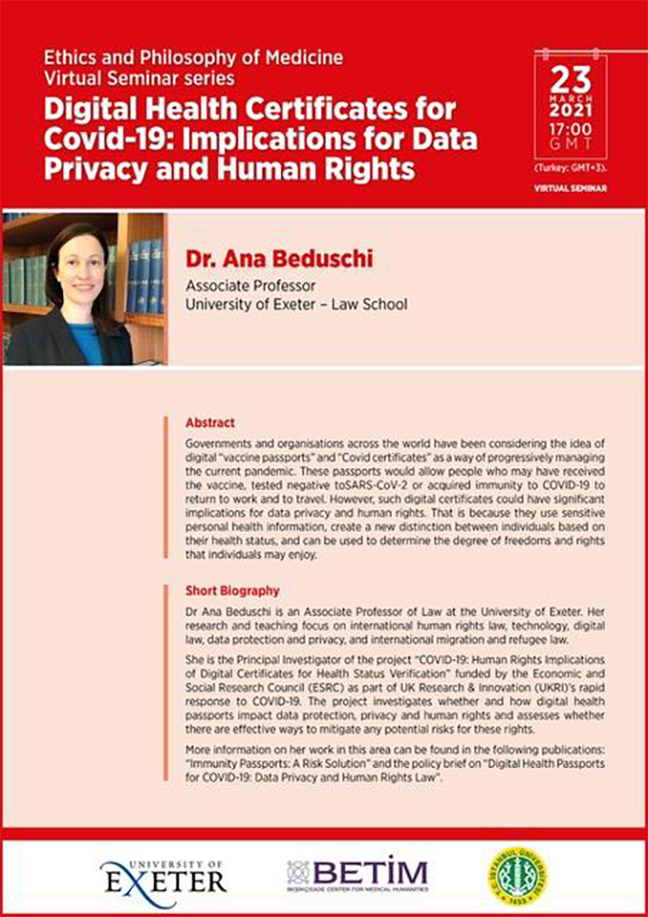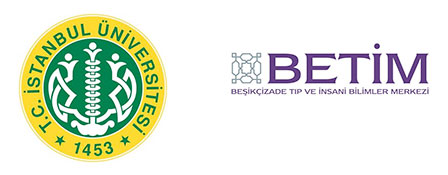Governments and organisations across the world have been considering the idea of digital “vaccine passports” and “Covid certificates” as a way of progressively managing the current pandemic. These passports would allow people who may have received the vaccine, tested negative to SARS-CoV-2 or acquired immunity to COVID-19 to return to work and to travel. However, such digital certificates could have significant implications for data privacy and human rights. That is because they use sensitive personal health information, create a new distinction between individuals based on their health status, and can be used to determine the degree of freedoms and rights that individuals may enjoy.
Speaker and discussant: Ana Beduschi
Ana Beduschi is Associate Professor of Law at the University of Exeter. Her research and teaching focus on international human rights law, technology, digital law, data protection and privacy, and international migration and refugee law.
She is the Principal Investigator of the project “COVID-19: Human Rights Implications of Digital Certificates for Health Status Verification” funded by the Economic and Social Research Council (ESRC) as part of UK Research & Innovation (UKRI)’s rapid response to COVID-19. The project investigates whether and how digital health passports impact data protection, privacy and human rights and assesses whether there are effective ways to mitigate any potential risks for these rights.
More information on her work in this area can be found in the following publications: “Immunity Passports: A Risk Solution” and the policy brief on “Digital Health Passports for COVID-19: Data Privacy and Human Rights Law”.



